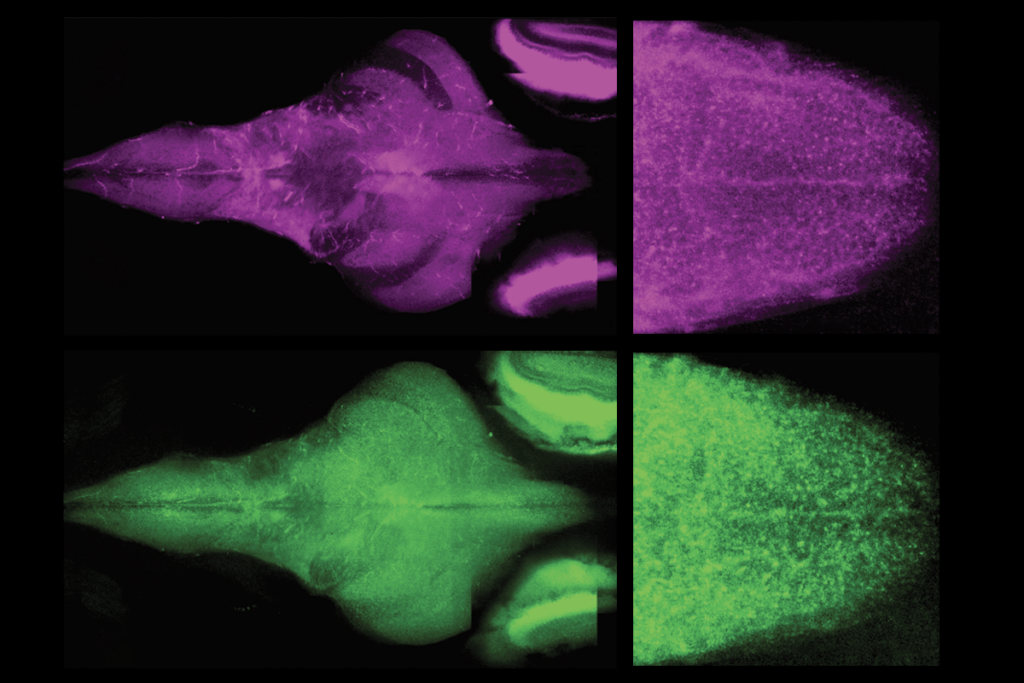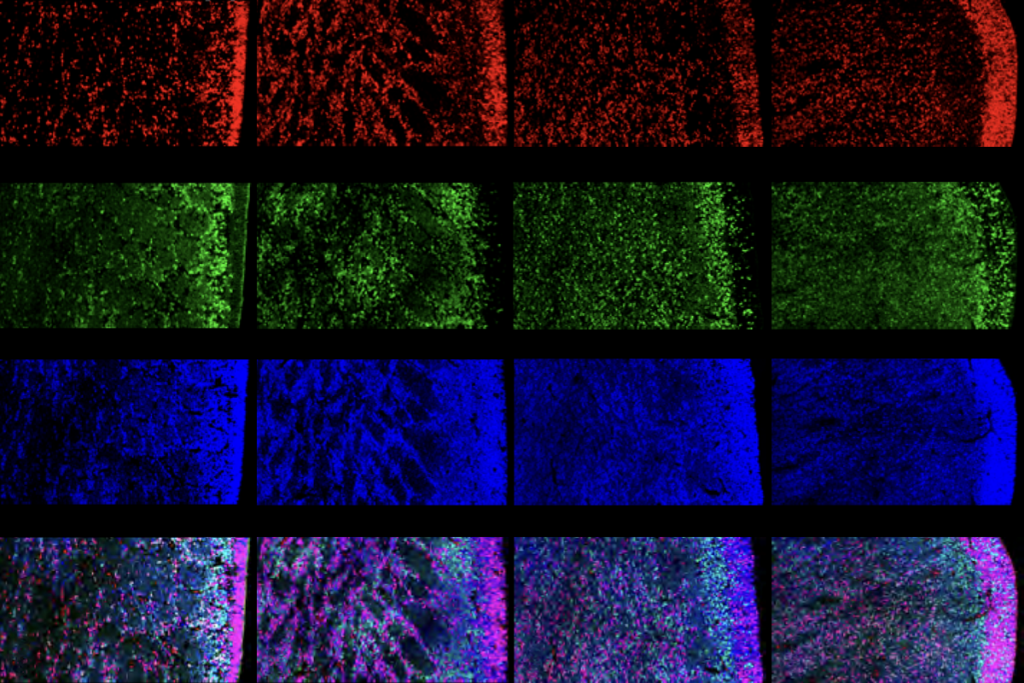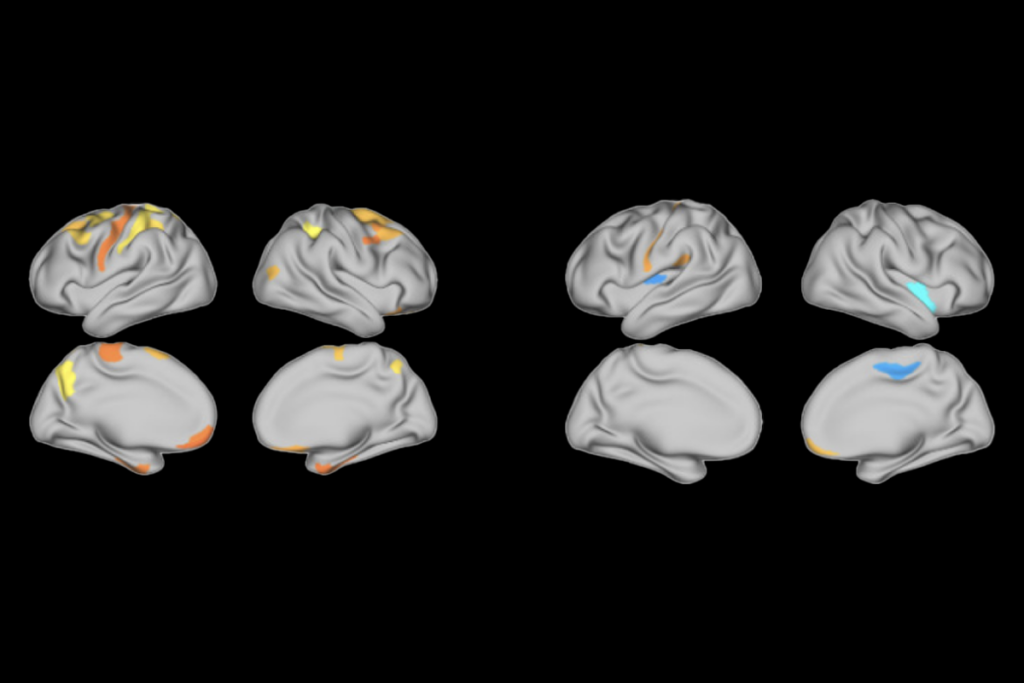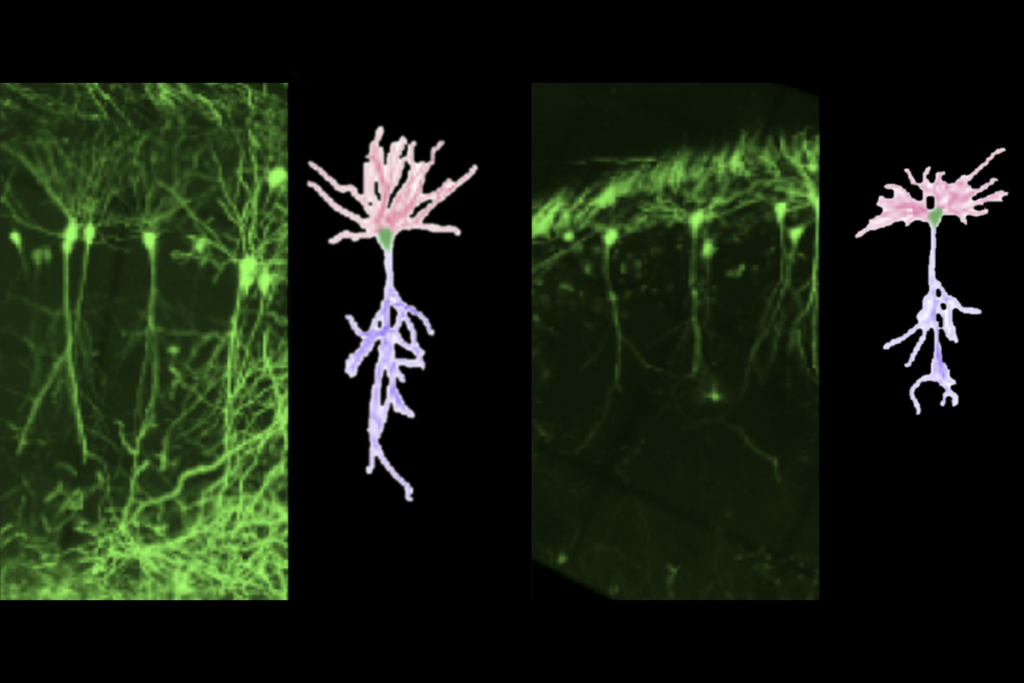Autism
Recent articles
New insights on sex bias in autism, and more
Here is a roundup of autism-related news and research spotted around the web for the week of 16 February.

New insights on sex bias in autism, and more
Here is a roundup of autism-related news and research spotted around the web for the week of 16 February.
Sex bias in autism drops as age at diagnosis rises
The disparity begins to level out after age 10, raising questions about why so many autistic girls go undiagnosed earlier in childhood.

Sex bias in autism drops as age at diagnosis rises
The disparity begins to level out after age 10, raising questions about why so many autistic girls go undiagnosed earlier in childhood.
Interneurons’ role in epilepsy, and more
Here is a roundup of autism-related news and research spotted around the web for the week of 9 February.

Interneurons’ role in epilepsy, and more
Here is a roundup of autism-related news and research spotted around the web for the week of 9 February.
Largest leucovorin-autism trial retracted
A reanalysis of the data revealed errors and failed to replicate the results.

Largest leucovorin-autism trial retracted
A reanalysis of the data revealed errors and failed to replicate the results.
Pangenomic approaches to the genetics of autism, and more
Here is a roundup of autism-related news and research spotted around the web for the week of 2 February.

Pangenomic approaches to the genetics of autism, and more
Here is a roundup of autism-related news and research spotted around the web for the week of 2 February.
Latest iteration of U.S. federal autism committee comes under fire
The new panel “represents a radical departure from all past rosters,” says autism researcher Helen Tager-Flusberg.

Latest iteration of U.S. federal autism committee comes under fire
The new panel “represents a radical departure from all past rosters,” says autism researcher Helen Tager-Flusberg.
‘Tour de force’ study flags fount of interneurons in human brain
The newly discovered cell type might point to the origins of the inhibitory imbalance linked to autism and other conditions.

‘Tour de force’ study flags fount of interneurons in human brain
The newly discovered cell type might point to the origins of the inhibitory imbalance linked to autism and other conditions.
FDA website no longer warns against bogus autism therapies, and more
Here is a roundup of autism-related news and research spotted around the web for the week of 26 January.

FDA website no longer warns against bogus autism therapies, and more
Here is a roundup of autism-related news and research spotted around the web for the week of 26 January.
Sensory profiles in autism, and more
Here is a roundup of autism-related news and research spotted around the web for the week of 19 January.

Sensory profiles in autism, and more
Here is a roundup of autism-related news and research spotted around the web for the week of 19 January.
Common and rare variants shape distinct genetic architecture of autism in African Americans
Certain gene variants may have greater weight in determining autism likelihood for some populations, a new study shows.

Common and rare variants shape distinct genetic architecture of autism in African Americans
Certain gene variants may have greater weight in determining autism likelihood for some populations, a new study shows.
Explore more from The Transmitter
Single gene sways caregiving circuits, behavior in male mice
Brain levels of the agouti gene determine whether African striped mice are doting fathers—or infanticidal ones.

Single gene sways caregiving circuits, behavior in male mice
Brain levels of the agouti gene determine whether African striped mice are doting fathers—or infanticidal ones.
Inner retina of birds powers sight sans oxygen
The energy-intensive neural tissue relies instead on anaerobic glucose metabolism provided by the pecten oculi, a structure unique to the avian eye.

Inner retina of birds powers sight sans oxygen
The energy-intensive neural tissue relies instead on anaerobic glucose metabolism provided by the pecten oculi, a structure unique to the avian eye.
Neuroscience needs single-synapse studies
Studying individual synapses has the potential to help neuroscientists develop new theories, better understand brain disorders and reevaluate 70 years of work on synaptic transmission plasticity.

Neuroscience needs single-synapse studies
Studying individual synapses has the potential to help neuroscientists develop new theories, better understand brain disorders and reevaluate 70 years of work on synaptic transmission plasticity.